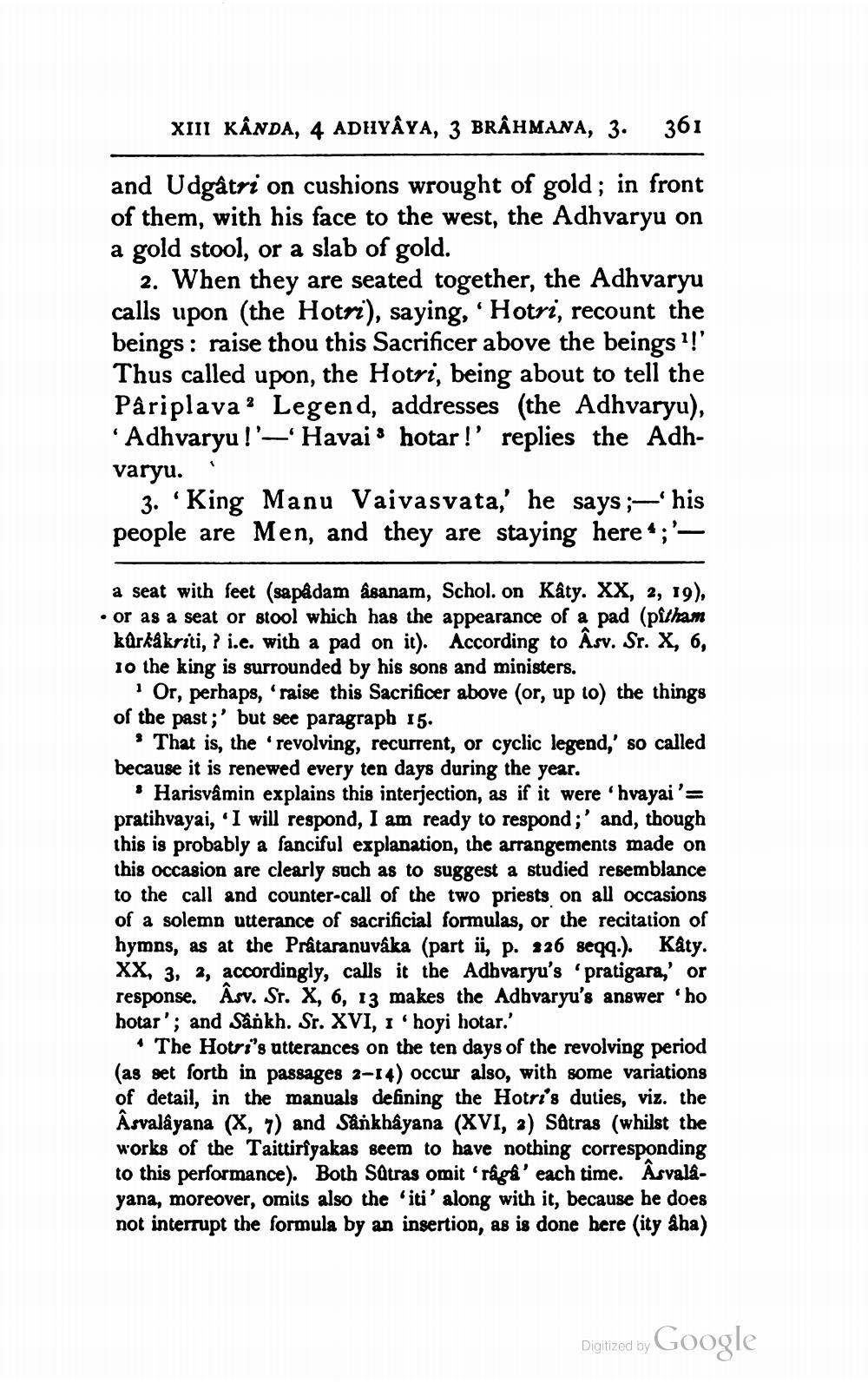________________
XIII KANDA, 4 ADHYAYA, 3 BRAHMANA, 3. 361
and Udgâtri on cushions wrought of gold; in front of them, with his face to the west, the Adhvaryu on a gold stool, or a slab of gold.
2. When they are seated together, the Adhvaryu calls upon (the Hotri), saying, 'Hotri, recount the beings: raise thou this Sacrificer above the beings 1!' Thus called upon, the Hotri, being about to tell the Pâriplava Legend, addresses (the Adhvaryu), 'Adhvaryu!'-'Havai hotar!' replies the Adh
varyu.
3. 'King Manu Vaivasvata,' he says;-'his people are Men, and they are staying here;'
a seat with feet (sapâdam âsanam, ⚫ or as a seat or stool which has the kûrkåkriti, ? i.e. with a pad on it). 10 the king is surrounded by his sons and ministers.
Schol. on Kâty. XX, 2, 19), appearance of a pad (pitham According to Asv. Sr. X, 6,
'Or, perhaps, 'raise this Sacrificer above (or, up to) the things of the past;' but see paragraph 15.
* That is, the 'revolving, recurrent, or cyclic legend,' so called because it is renewed every ten days during the year.
• Harisvâmin explains this interjection, as if it were 'hvayai'= pratihvayai, 'I will respond, I am ready to respond;' and, though this is probably a fanciful explanation, the arrangements made on this occasion are clearly such as to suggest a studied resemblance to the call and counter-call of the two priests on all occasions of a solemn utterance of sacrificial formulas, or the recitation of hymns, as at the Prâtaranuvâka (part ii, p. 226 seqq.). Kâty. XX, 3, 2, accordingly, calls it the Adhvaryu's 'pratigara,' or response. Âsv. Sr. X, 6, 13 makes the Adhvaryu's answer 'ho hotar'; and Sankh. Sr. XVI, 1 'hoyi hotar.'
The Hotri's utterances on the ten days of the revolving period (as set forth in passages 2-14) occur also, with some variations of detail, in the manuals defining the Hotri's duties, viz. the Âsvalâyana (X, 7) and Sankhâyana (XVI, a) Sutras (whilst the works of the Taittiriyakas seem to have nothing corresponding to this performance). Both Sûtras omit 'râgâ' each time. Asvalâyana, moreover, omits also the 'iti' along with it, because he does not interrupt the formula by an insertion, as is done here (ity âha)
Digitized by
Google




